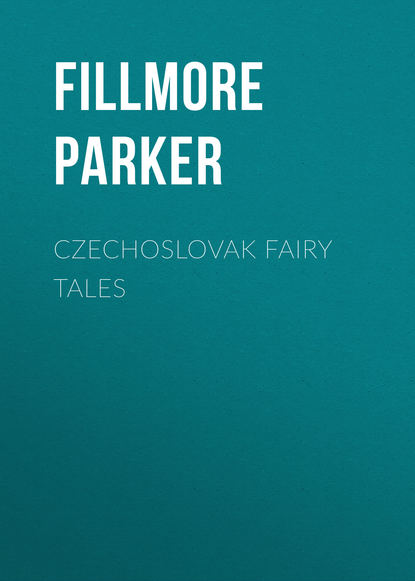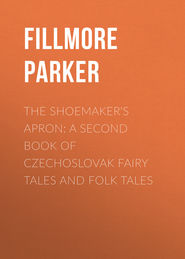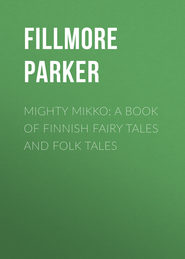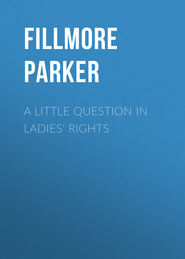По всем вопросам обращайтесь на: info@litportal.ru
(©) 2003-2024.
✖
Czechoslovak Fairy Tales
Настройки чтения
Размер шрифта
Высота строк
Поля
So he began to claw his way up the smooth glass, but he hadn’t gone many yards before his foot slipped and down he went so hard that he didn’t know where he was or what had happened to him until he found himself sitting on the ground.
In his vexation he began to throw away the dumplings, thinking that perhaps their weight had dragged him down. He took one and threw it straight at the hill. Imagine his surprise to see it fix itself firmly in the glass. He threw a second and a third and there he had three steps on which he was able to stand with safety!
The prince was overjoyed. He threw dumpling after dumpling and each one of them became a step. First he threw the leaden ones, then the silver ones, and last of all the golden ones. On the steps made in this way he climbed higher and higher until he had reached the very summit of the hill. Then he knelt under the magic tree, lifted up his hands, and into them the Three Citrons dropped of their own accord!
Instantly the tree disappeared, the Glass Hill sank until it was lost, and when the prince came to himself there was neither tree nor hill to be seen, but only a wide plain.
Delighted with the outcome of his adventure, the prince turned homewards. At first he was too happy even to eat or drink. By the third day his stomach began to protest and he discovered that he was so hungry that he would have fallen ravenously upon a leaden dumpling if he had had one in his pocket. But his pocket, alas, was empty, and the country all about was as bare as the palm of his hand.
Then he remembered what the ogre of the Golden Castle had told him and he took out one of the Three Citrons. He cut it open, and what do you suppose happened? Out jumped a beautiful maiden fresh from the hand of God, who bowed low before him and exclaimed:
“Have you food ready for me? Have you drink ready for me? Have you pretty clothes ready for me?”
“Alas, beautiful creature,” the prince sighed, “I have not. I have nothing for you to eat or to drink or to put on.”
The lovely maiden clapped her hands three times, bowed before him, and disappeared.
“Ah,” said the prince, “now I know what kind of citrons you are! I’ll think twice before opening one of you again!”
Of the one he had opened he ate and drank his fill, and so refreshed, went on. He traveled three days and three nights and by that time he began to feel three times hungrier than before.
“God help me!” thought he. “I must eat something! There are still two citrons and if I cut open one there would still be one left.”
So he took out the second citron, cut it in two, and lo, a maiden twice as beautiful as the first stood before him. She bowed low and said:
“Have you food ready for me? Have you drink ready for me? Have you pretty clothes ready for me?”
“No, lovely creature, I haven’t! I haven’t!”
The maiden clapped her hands thrice, bowed before him, and disappeared.
Now there was only one citron left. The prince took it in his hand, looked at it, and said: “I won’t cut you open until I’m safe at home in my father’s house.”
He took up his journey again and on the third day he came to his native town and his father’s castle. He had been gone a long time and how he ever got back he didn’t know himself.
Tears of joy rained down the old king’s cheeks.
“Welcome home, my son, welcome a hundred times!” he cried, falling on the prince’s neck.
The prince related the adventures of his journey and they at home told him how anxiously they had awaited his return.
On the next day a great feast was prepared. All the nobles in the land were invited. The tables were spread with food and drink the most expensive in the world and many rich dresses embroidered in gold and studded with pearls were laid out.
The guests assembled, seated themselves at the tables, and waited. Music played and when all was ready, the prince took the last citron and cut it in two. Out jumped a beautiful creature, three times lovelier than the others.
“Have you food ready for me?” she cried. “Have you drink ready for me? Have you pretty clothes ready for me?”
“I have indeed, dear heart!” the prince answered. “I have everything ready for you!”
He led her to the gorgeous clothes and she dressed herself in them and every one present marveled at her great beauty.
Soon the betrothal took place and after the betrothal a magnificent wedding.
So now the old king’s wish was fulfilled. He blessed his son, gave over the kingdom to him, and not long afterwards he died.
The first thing that faced the young king after his father’s death was a war which a neighboring king stirred up against him. So the young king had to bid farewell to the bride whom he had won so dearly and lead his men to battle. In order that nothing happen to the queen in his absence, he built a golden throne for her in the garden beside the lake. This throne was as high as a tower and no one could ascend it except those to whom the queen let down a silken cord.
Not far from the king’s castle lived the old woman who, in the first place, had told him about the Three Citrons. She knew well enough how the young king had won his bride and she was deeply incensed that he had not invited her to the wedding and in fact had not even thanked her for her good advice.Now this old woman had a gipsy for servant whom she used to send to the lake for water. One day when this gipsy was filling her pitcher, she saw in the lake a beautiful reflection. She supposed it was a reflection of herself.“Is it right,” she cried out, “that so lovely a creature as I should carry water for that old witch?”In a fury she threw the pitcher on the ground and broke it into a hundred pieces. Then she looked up and discovered that it wasn’t her own reflection she had seen in the water but that of the beautiful queen.Ashamed of herself, she picked up the broken pitcher and went home. The old woman, who knew beforehand what had happened, went out to meet her with a new pitcher.“It’s no matter about the pitcher,” the old woman said. “Go back to the lake and beg the lovely lady to let down the silken cord and pull you up. Tell her you will comb her hair. When she pulls you up, comb her hair until she falls asleep. Then stick this pin into her head. After that you can dress yourself up in her clothes and sit there like a queen.”
Not far from the king’s castle lived the old woman who, in the first place, had told him about the Three Citrons. She knew well enough how the young king had won his bride and she was deeply incensed that he had not invited her to the wedding and in fact had not even thanked her for her good advice.
Now this old woman had a gipsy for servant whom she used to send to the lake for water. One day when this gipsy was filling her pitcher, she saw in the lake a beautiful reflection. She supposed it was a reflection of herself.
“Is it right,” she cried out, “that so lovely a creature as I should carry water for that old witch?”
In a fury she threw the pitcher on the ground and broke it into a hundred pieces. Then she looked up and discovered that it wasn’t her own reflection she had seen in the water but that of the beautiful queen.
Ashamed of herself, she picked up the broken pitcher and went home. The old woman, who knew beforehand what had happened, went out to meet her with a new pitcher.
“It’s no matter about the pitcher,” the old woman said. “Go back to the lake and beg the lovely lady to let down the silken cord and pull you up. Tell her you will comb her hair. When she pulls you up, comb her hair until she falls asleep. Then stick this pin into her head. After that you can dress yourself up in her clothes and sit there like a queen.”
It was easy enough to persuade the gipsy. She took the pitcher and the pin and returned to the lake.
As she drew water she gazed at the lovely queen.
“Oh, how beautiful you are!” she whined, leering up at the queen with an evil eye. “How beautiful you are! Aye, but you’d be a hundred times more beautiful if you but let me comb out your lovely hair! Indeed, I would so twine those golden tresses that your lord would be delighted!”
With words like these she beguiled and coaxed the queen until she let down the silken cord and drew the gipsy up. Once on the throne, the wicked gipsy combed out the golden tresses and plaited them and arranged them until the queen fell sound asleep. Then the gipsy took the pin and stuck it into the queen’s head. Instantly a beautiful white dove flew off the golden throne and not a trace was left of the lovely queen except her rich clothing. The gipsy dressed herself in this, sat in the queen’s place, and gazed down into the lake. But in the lake no lovely reflection showed itself, for even in the queen’s clothes the gipsy remained a gipsy.
The young king waged a successful war against his enemies and made peace. Scarcely had he got home when he hurried to the garden to see whether anything had happened to his heart’s delight. Who can express in words his astonishment and horror when instead of his beautiful wife he saw the evil gipsy!
“Ah, my dearest one, how you have changed!” he murmured and tears flowed down his cheeks.
“Yes, my dear, I have changed, I know I have,” the gipsy answered. “It was grief for you that has broken me.”
She tried to fall on his neck but the king turned quickly away and left her.
From that time forth he had no peace but day and night he mourned the lost beauty of his wife and nothing consoled him.
Grieving in this way and thinking always the same sad thoughts, he was walking one day in the garden when suddenly a beautiful white dove flew down from a high tree and alighted on his hand. She looked up at him with eyes as mournful as his own.
“Ah, my poor dove,” the king said, “why are you so sad? Has your mate also changed?”
As he spoke he stroked the dove gently on the back and on the head. On the head he felt a little lump. He blew aside the feathers and discovered the head of a pin. He pulled out the pin and instantly the sad dove changed into his own beautiful wife.
She told him what had happened to her, how the gipsy had deceived her and stuck the pin into her head. The king had the gipsy and the old witch caught at once and burnt at the stake.
From that time on nothing happened to mar the king’s happiness, neither the plots of his enemies nor the spite of evil people. He lived in love and peace with his beautiful wife and he ruled his kingdom wisely. In fact he’s ruling it still if he hasn’t died.










